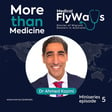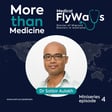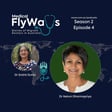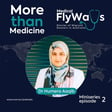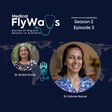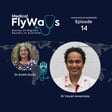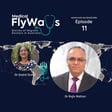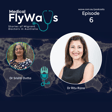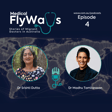
More than Medicine: Episode 1 - Dr Janaka Pieris
Dr Janaka Peiris is a GP with over 30 years of clinical experience in general practice, occupational medicine, and medical assistance. Born in Kandy, Sri Lanka, Dr Peiris grew up in London and moved to Brisbane in 2010. Beyond his medical career, under the pseudonym Janaka Malwatta, he is a writer, with a cricket blog and poetry collection. In 2021 he won the Thomas Shapcott Poetry Prize from Arts Queensland for his anthology, Blackbirds Don't Mate with Starlings. He also explores narrative poetry, often focusing on Sri Lankan stories, and has performed at events like the Queensland Poetry Festival.
Join us as Dr Peiris shares his journey from being an "NHS refugee" in the UK to finding autonomy in general practice in Australia. He discusses the factors that led him to choose Brisbane, his experiences as an immigrant doctor, and the inspiration behind his poetry anthology, which addresses racial tensions and personal experiences.
